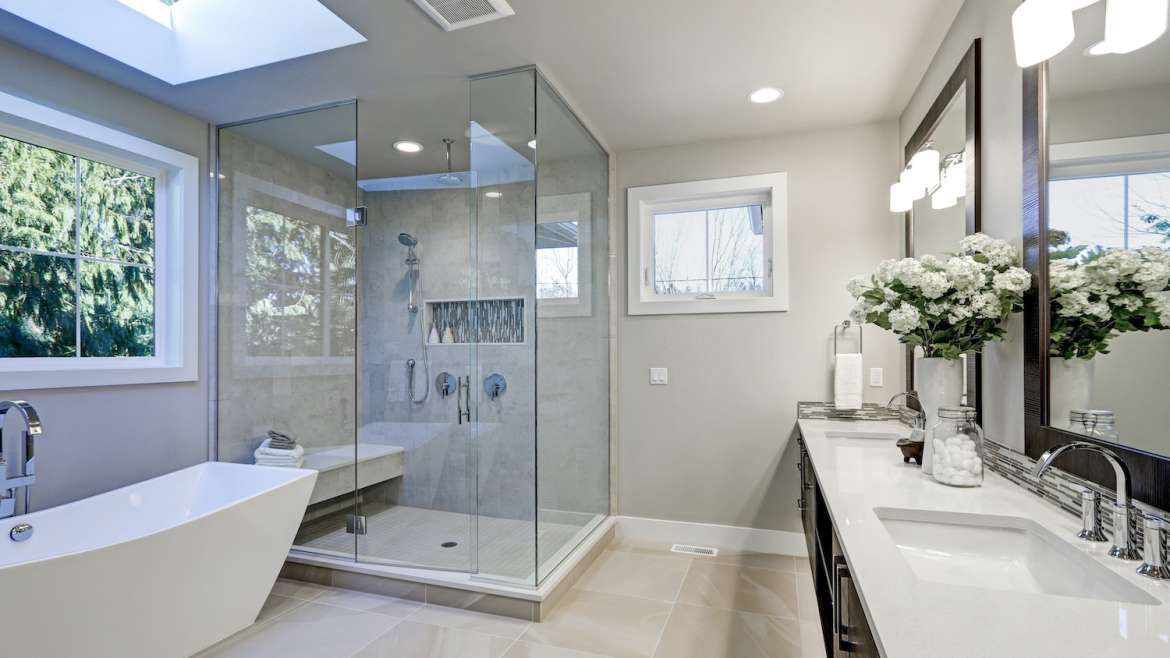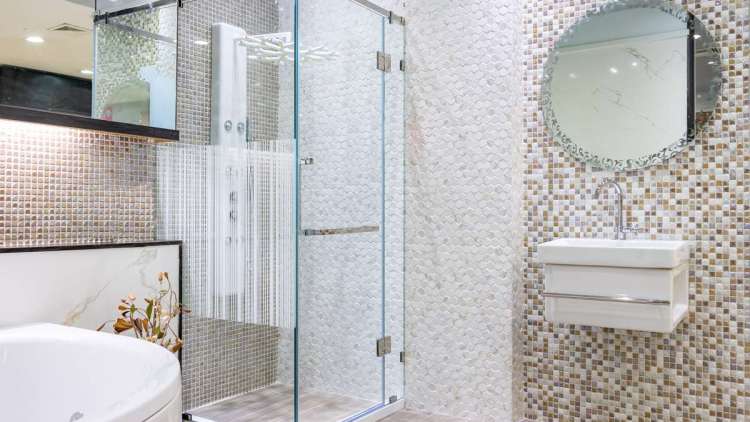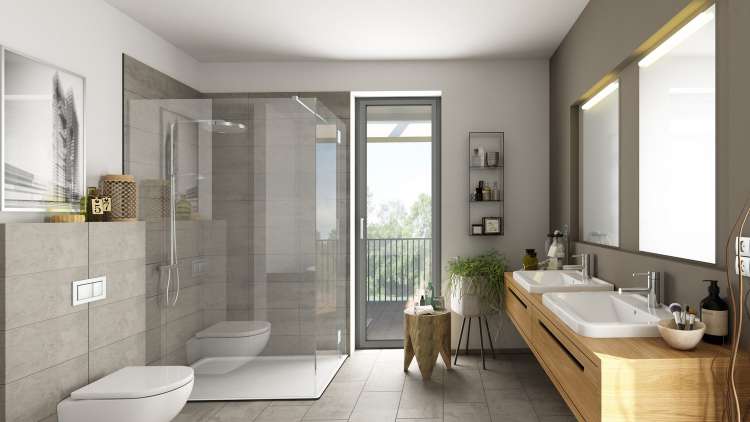A variety of options are available when selecting glass shower doors in Chicago. But, one common hurdle faced by buyers is that if the selection between a hinged shower door and a sliding shower door. Both of these options successfully maintain water inside the shower space. However, what are the unique features of each of them? We have gathered this information below to show you the disadvantages and advantages of each option.
Sliding Shower Door
Sliding shower doors are also referred to as bypass shower doors and they feature a side to side movement. They are traditionally accompanied by tracks at both vertical sides and the bottom. Certain newer designs are even frameless or trackless.
Advantages
Ideal for smaller bathrooms: Sliding shower glass doors in Chicago offer efficiency when it comes to space-saving solutions since they do not open out. These work best in tiny bathrooms in order to take advantage of every square inch.
They also deliver an aesthetic appearance that is seamless: Sliding glass shower doors, particularly frameless ones, do not block any light and even assist in transforming your bathroom space into a more coherent unit, whatever the complications of the footprint and fixtures.
Handles perform their function: Luckily, these glass shower doors Chicago residents love tend to boast handles that double as towel racks. This handle typically runs the entire door length on one of its sides.
This contributes to the accessibility of showers and tubs. Sliding shower doors consist of two glass doors with a small overlap which either roll or slide to open and close them. This creates equal access to the tub from either side. This way, the water can be turned on with no need to step inside the tub or the stall.
Disadvantages
Reduced access space: These doors are fixed with the doors roll/slide into one another, limiting the space through which one may enter the shower enclosure.
Hinged Shower Door
These doors open by swinging out. They are available in a frameless and a framed option. The frameless variety is installed with the help of two hinges on the side that have been directly into the wall of your bathroom.
Advantages
Simple maintenance and cleaning: With the absence of tracks on the bottom, maintenance and cleaning of shower glass doors in Chicago is much easier than it is with sliding doors.
Opening is larger and more safe: Hinged doors are capable of opening out to 90 degrees or more, meaning they offer a wider opening into the shower space. Additionally, openings can be expanded through the incorporation of extra side panels that make them safer for those with mobility issues.
Disadvantages
These are unsuitable for smaller bathrooms: Since hinged doors open to the outside, they need additional space. If you have a smaller bathroom, this may be problematic.
Water can trickle out: Once the door is opened post-shower, water can spill onto the floor of the bathroom, around the shower’s exterior. This will require additional clean up time after each shower.
When planning a bathroom renovation project, your bathrooms’s area/size will play a major role in determining whether you are better off choosing a hinged shower door or a sliding shower door. Its expense depends on the thickness and type of glass utilized in addition to whether the doors are frameless, sem-frame, or framed. You simply need to determine the best fit for your needs, style, and your bathroom itself.



